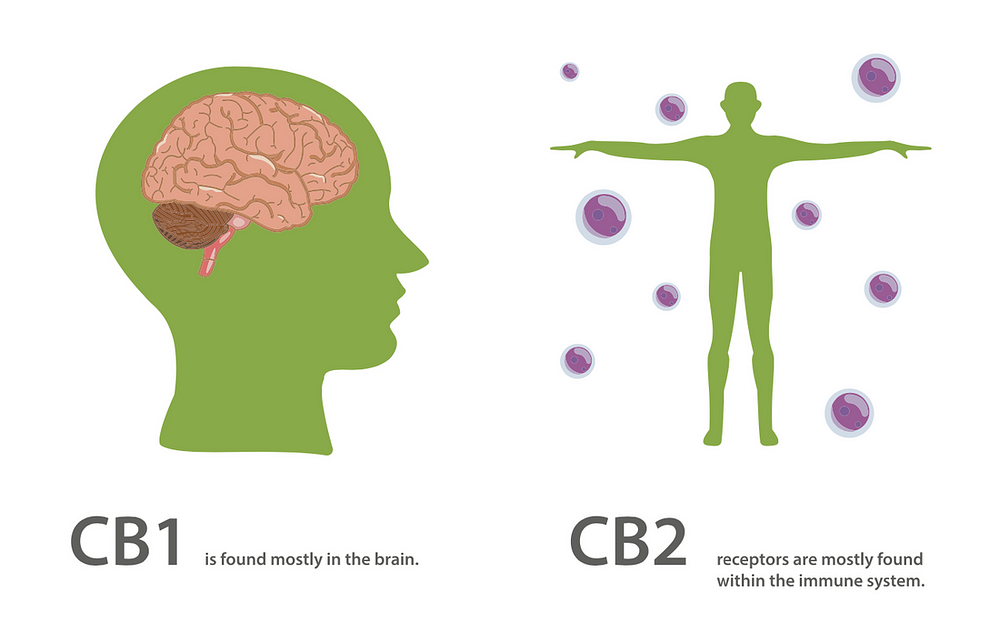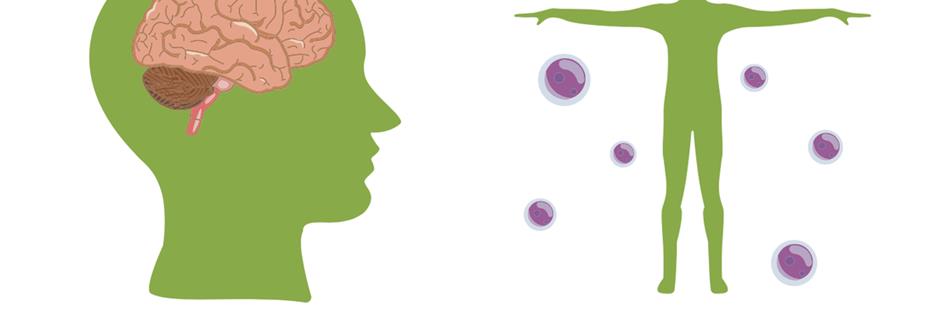
Sex hormones (estrogen, progesterone, and testosterone) substantially impact sexual differentiation, maturation, and adult sexual behavior. The effect of poorly regulated sex hormones affects a significant part of American society, with symptoms ranging from poor sleep quality to atopic dermatitis.
Sex hormones are synthesized by the conversion of cholesterol into pregnenolone, the precursor of all steroid hormones. A recent scientific review concluded that pregnenolone controls cannabinoid receptor activation, which establishes the connection between steroid hormones and the endocannabinoid system (ECS).
The ECS plays a role in depression, anxiety, and addiction
The ECS of the body is an evolutionary-conserved neuroregulatory system composed of:
- Naturally produced chemicals (endocannabinoids)
- The receptors they bind to — metabotropic receptors coupled to G-proteins (CB1 and CB2 receptors)
- The enzymes that synthesize and degrade them
It has been established that the ECS plays a vital role in several psychopathological states, such as depression, anxiety, and addiction. Intriguingly, pregnenolone seems to protect the brain from cannabis receptor overactivation.
With this work, researchers Dicky Struik, Fabrizio Sanna, and Liana Fattore tried to clarify the complex influence of endogenous and synthetic steroid hormones on the endocannabinoid system and cannabinoid activity.
Sex hormones play a role in ECS differentiation
Based on systematic studies, it has been confirmed that the ECS is sexually dimorphic and that sex hormones play a crucial role in its differentiation. The hormone-driven modulation of the ECS provides the biological basis for sex disparities in endocannabinoid-related behaviors and effects.
It has been concluded that differences in cannabinoid sensitivity are most likely based on significant sex-dependent differences in physical CB1 density. Besides impacting CB1 expression levels, sex hormones also play a vital role in regulating the levels of endocannabinoids and adjust the activity of the endocannabinoid metabolizing enzymes.
Furthermore, the level and activity of steroid hormones can also alter the function of the ECS in males and females alike.
Sex differences in cannabinoids can be categorized as quantitative, where the magnitude of the phenomena differs, or qualitative, where the underlying mechanism differs. So far, the majority of the literature has identified chiefly quantitative sex differences in cannabinoid effects.
Copious studies determine that sex differences of the ECS function exist in a remarkable variety. These include regulating motivated behaviors (sexual activity), food intake, locomotor, exploratory activity, working memory, and anxiety. A sex-dependent drug response has meaningful implications when considering the inherent utility of cannabinoids as a therapeutic option.

The regulatory capacity of sex hormones on the ECS
This publication, The Modulating Role of Sex and Anabolic-Androgenic Steroid Hormones in Cannabinoid Sensitivity, emphasizes the complex and bi-directional roles of the regulatory capacity of sex hormones on the ECS. A pure and linear relationship between the two does not exist. Moreover, adjusting for sex, cannabinoids can be more or less potent, and in some cases, more or less efficacious.
Further research into the neuronal expression of the CB1 receptors in the corticolimbic system may provide opportunities for studying the potential cross-talk between endocannabinoid signaling and steroid hormones. Numerous questions about underlying mechanisms remain unanswered to date, demanding further research in the field to elucidate the origin of sex differences often observed in cannabinoid sensitivity.
Cannabinoids are most well-known as part of a significant variety of components in the plant cannabis. Whilst its therapeutic value has not been adequately harnessed yet, the non-psychoactive component, cannabidiol (CBD), demonstrated positive effects on several disorders. The ECS is a promising therapeutic target for conditions ranging from inflammation, multiple sclerosis, epilepsy to schizophrenia, cardiovascular diseases, and cancer.
By Dr. Bjoern Langbein

